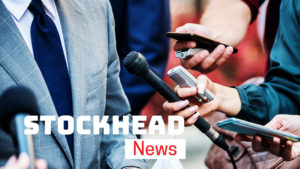Health: Wattle Health ditches founders, makes pitch to get back trading

Pic: metamorworks / iStock / Getty Images Plus via Getty Images
In order to break a four-month suspension from the ASX, struggling infant formula business Wattle Health (ASX:WHA) has taken drastic action by removing the founders and a board member.
It has also signed a deal to access China, renegotiated a distribution agreement with Chemist Warehouse, and has outlined a new arrangement to buy Blend & Pack, a dairy manufacturing facility the company has been trying to buy a larger piece of since February 2019.
The board is also stripping $3m of costs out of the company with cuts to staffing, admin costs and marketing.
Wattle cofounder Lazarus Karasavvidis is stepping down immediately as CEO and from the board, and being replaced by Dr Tony McKenna who is stepping up to become group CEO and managing director.
Cofounder Martin Glenister is resigning as ASEAN sales director, and Georgia Sotiropoulos is remaining as an employee but has resigned from the board.
McKenna is being paid a total package of $500,000 a year, for the dual roles of CEO at both Corio Bay Dairy Group and Wattle Health — a pay cut from the $629,384 his predecessor was paid in 2019.
No cap raise necessary
The 10-year Chemist Warehouse deal was signed in December and is conditional on Wattle raising $62m.
Wattle would pay Chemist Warehouse 20 million shares in exchange for a variety of services, promised to spend $1.2m each year on marketing for the first five years, and the retailer would carry Wattle’s dairy and infant skin care range.
That deal has now been changed to remove the $62m cap raise condition.
Will this be the last attempt at the B&P deal?
The long-running attempt to buy a larger chunk of China Food and Drug Administration-accredited Blend & Pack has been renegotiated again.
Now Wattle will buy 75 per cent for $US10m ($14.5m) in cash and $US15m in shares priced at 40c each, both paid now, and a deferred payment of $US30m over five years.
If shareholders don’t approve this latest plan by the end of February, it’s on the hook for $US1m in cash and $US7.5m in shares.
The board says it’s a better deal because while the total value of $US55m is the same, the company doesn’t have to pay $US30m up front.
The original deal in February 2019 was to buy an extra 46 per cent for $US46m, and has been renegotiated and delayed several times as Wattle struggled to get the cash together.
Wattle already owned 5 per cent of Blend & Pack.
Another China distribution deal
Wattle has confirmed a joint venture with Nouriz (Shanghai) Fine Food Co after first alerting the market about a possible transaction in November 2019.
‘Australife Co’ will own brands to be sold in China, with the first products launched once the Corio Bay Dairy Group spray drying facility opens in the second half of calendar 2020.
How has selling baby formula to China been so hard?
In an era when organic baby food and formula — particularly that made in Australia — is flying off the shelves in Asia and at home, Wattle has found making sales surprisingly difficult.
Sales peaked in the December quarter of 2017, at $540,027. Since then, bar one other quarter, sales have hovered more closely around $200,000 a quarter.
The company secured coveted brand slots from the Chinese Food and Drug Administration for milk powders, via Blend & Pack which it invested in in 2017, and for its baby food.
But the wheels started to come off around 2018 when the company decided to get into making its own products.
It formed a joint venture to create Corio Bay Dairy Group, a factory for organic spray drying to make milk powder. The cost to Wattle was $63m.
The company continued to sign distribution and sales deals — 10 in 2017-18 — but the process to acquire a majority stake in Blend & Pack took its toll. Only three distribution or sales deals were signed or suggested in 2019.
The company, under McKenna, must now bed down the range of domestic and international supply and distribution deals signed since 2017, as well as oversee the establishment of a brand new manufacturing facility at Corio and the integration of the Blend & Pack factory into the company’s strategy.
“Despite the many challenges faced by WHA we have brought together the physical assets, people capability and some initial domestic and international sales partnerships that provide an excellent foundation to become a successful Australian dairy company,” McKenna said in a statement.
In other ASX health news:
Croplogic (ASX:CLI) had based a forecast of a $64m first hemp crop revenue on a couple of numbers, the most important being cannabidiol (CBD) yield of 10 per cent. What it got, according to the response to the ASX’s 43 questions, was an average of 2.11 per cent.
Croplogic blamed the weather.
Furthermore, that $64m profit — repeated several times in 2019 statements to the ASX — was also based on harvesting 900,000 pounds of material. What they got was 539 pounds for the initial shipment to Deshutes Labs, which was sent back without payment because CBD rates were below the contracted 8 per cent.
Croplogic had a supply agreement for 300,000 pounds of material. That has not been shipped. The company is yet to reveal how much of the $64m it made from the crop.
UNLOCK INSIGHTS
Discover the untold stories of emerging ASX stocks.
Daily news and expert analysis, it's free to subscribe.
By proceeding, you confirm you understand that we handle personal information in accordance with our Privacy Policy.








